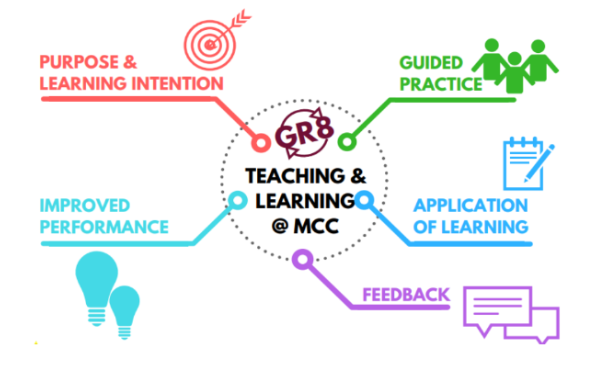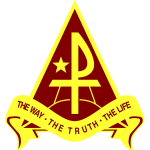Assessment and Reporting
Assessment:
Evaluating the
Learning
Assessment at MCC is an essential component of the teaching and learning cycle. The purpose of assessment is to gather valid, reliable and useful information about student learning in order to:
- monitor student achievement in relation to outcomes
- guide future teaching and learning opportunities
- provide ongoing feedback to students to improve learning

Our College embraces assessment for, assessment as and assessment of learning to enable teachers to gather evidence and make judgements about student achievement.
Through assessment for learning and assessment as learning strategies, teachers at MCC are able to integrate:
- self-assessment and peer assessment strategies for students to actively monitor and evaluate their own learning feedback
- evidence to help teachers and students decide whether students are ready for the next phase of learning or whether they need further learning experiences to consolidate their knowledge, understanding and skills.
Assessment for learning and assessment as learning approaches help teachers and students to know if current understanding is a suitable basis for future learning. Teachers use their professional judgement, in a standards-referenced framework, to extend the process of assessment for learning into the assessment of learning.
Assessment for learning involves teachers using evidence about students’ knowledge, understanding and skills to inform their teaching. Sometimes referred to as ‘formative assessment’, it usually occurs throughout the teaching and learning process to clarify student learning and understanding.
Assessment as learning occurs when students are their own assessors. Students monitor their own learning, ask questions and use a range of strategies to decide what they know and can do, and how to use assessment for new learning.
Assessment of learning assists teachers in using evidence of student learning to assess achievement against outcomes and standards. Sometimes referred to as ‘summative assessment’, it usually occurs at defined key points during a unit of work or at the end of a unit, term or semester, and may be used to rank or grade students.
The effectiveness of assessment of learning for grading or ranking depends on the validity and reliability of activities. Its effectiveness as an opportunity for learning depends on the nature and quality of the feedback.

Teaching and Learning Cycle
At MCC, our Teaching and Learning Cycle, visually displayed in every room and embraced and enacted by our staff, demonstrates how each teacher uses assessment in every lesson.
Teachers convey student learning progress and feedback both formally and informally. Throughout the year, via Compass communication, phone and email, teachers provide feedback to staff and parents to identify student learning strengths, needs and goals.
In addition, staff provide formal feedback via Progress and Semester Reports 3 times throughout the year:
- Term 1 – Progress Reports and Parent/Teacher/Student Conferences
- End of Semester 1 – Semester Reports and Parent/Teacher/Student Conferences
- End of Semester 2 – Semester Reports
Conferences with Students and Parents
At MCC we ensure that our Conferences with students and parents are targeted and productive learning, through a consistent structure:
Question 1
- Can you tell (parent) what you are learning in (subject)?
- How are you finding (subject)?
- How do you think you are going in (subject)?
- What do you enjoy about (subject)?
Question 2
- What are you doing well?
- What is your strength in (subject)?
Question 3
- What do you need to improve?
- What are you finding challenging in (subject)?
Question 4
- How can you improve that?
- What can you do to improve?
Question 4
- How can you improve that?
- What can you do to improve?
Question 5
- Do you have any questions?
- What learning goal can we agree upon moving forward?
